Tell us a little about yourself, and what you do at Knowledge E
I did a Phd in Literature and Religion, and drifted into research publishing. After my husband was given a couple of months’ notice that we were moving to Dubai, I started looking for a job and found Knowledge E. What really drew me to this role, as I am also an academic, is that Knowledge E works with research communities and local research institutions to help them develop and grow. As an independent academic, sitting on various editorial boards and on the committees of various scholarly organisations it was great to find a role where I can use my private academic interests in my professional life.
Knowledge E itself started through being the local partner for all the big publishers, as the bureaucracy here requires local partners for universities and research organisations. However we have since expanded into different areas, and now offer a number of additional services, including capacity building (both self-paced learning and expert-led courses), consultancy, and publishing.
On the publishing side, which I manage, we work closely with the journals, and help them with things like policies and finding reviewers. We’re extremely transparent, so when journals join and pay for our services, they know exactly what they’re getting. We would really like to support the region, and institutions in the region to set up open access presses, and encourage faculty to publish in them.
At the time when the company was being founded, our CEO Kamran Kardan also set up a charitable organisation, the Knowledge E Foundation. This organisation does a lot of work for the global community. In November about half of the company is going to Nepal to build a school. We try to build one school a year. We also provide funding for open access journals, school grants and organise the Forum for Open Research in MENA (F.O.R.M). So it’s a very interesting company to come and work for, because there is a charitable element as well as a commercial element.
What is the Forum for Open Research in MENA (F.O.R.M)?
About two years ago I proposed that we establish a new initiative as an independent project of the Knowledge E Foundation to really promote open science in the region. In Europe, academic communities generally know about open access even when it isn’t necessarily the norm. Whereas here, there is a huge amount of mistrust. We found through a series of annual surveys that over 80% of respondents linked open access and open science to predatory practices, and open access journals were viewed as low quality because of that. So, Forum for Open Research in MENA (F.O.R.M.), was launched to help address these misconceptions and, over the longer term, to build the frameworks, resources and infrastructures for the regional research communities to use as they towards more open research practises.
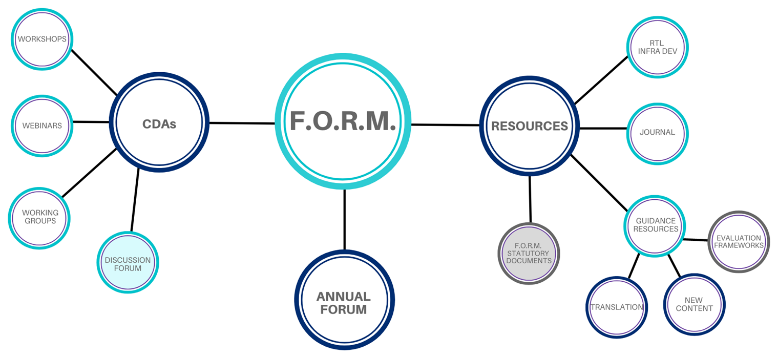
It sounds like these developments have happened pretty fast, how has the local community responded to these initiatives?
So, in 2021 I suggested we do a small webinar on open access, to address some of the confusion around this topic. It snowballed and ended up being a symposium with 13 speakers from six continents, and with around 700 attendees. The event turned out to be very interactive, with attendees sharing ideas and communicating with each other. This, coupled with various librarians and researchers contacting me after the event to ask for advice in establishing open access policies, led me to propose the launch of the FORM initiative.
We kickstarted the initiative with a big regional conference, the 1st Annual Forum, in 2022 in Cairo, as we have a strong connection to the Egyptian Knowledge Bank (EKB). UNESCO and ALESCO also supported and endorsed the event, which was a huge success, with 50 speakers and 1100 delegates online and in person from 48 countries.
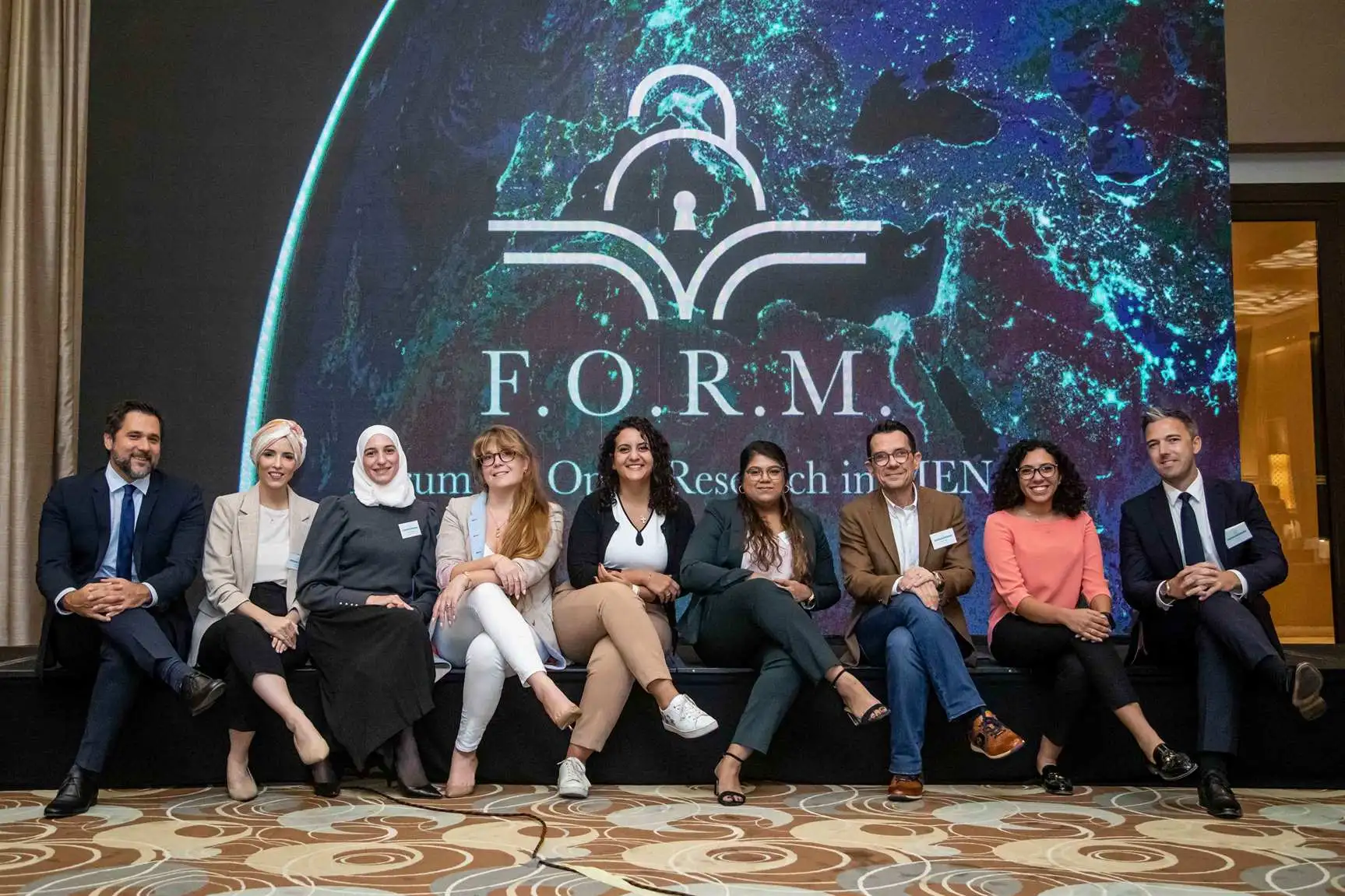
Since then, we’ve started our programme of community development activities, with at least one event every month. For these community events the goal is to focus on practical learning experiences across all the different areas. We’re still in the ‘tree shaking’ stage, to see what people want and need, and after each event our community tells us what they want more of. So far we’ve worked with the International Science Council, PKP, DOAJORCID, and cOAlition S, and have events planned with BOAI, Datacite, AfricaXiv, Crossref, PreReview, and various other organisations.
There is huge support for what we’re doing, and we get so many emails from people across the region who just want to say ‘thank you’ and tell us the work we do is extremely important and needed.
What’s the plan for the Annual Forum this year?
This year’s Annual Forum will be hosted in U.A.E. from the 22nd to the 25th October, in partnership with Khalifa University, UNESCO, and the UAE Ministries of Education and Culture,. UNESCO is much more involved this year, and is encouraging us to spearhead the development of open science in all 22 Arab states, with a view to establish a larger scale initiative. We’re therefore dedicating the first day to policy making at regional, national, and institutional levels. Day two is comprised of case studies from across the region, and day three will be online with global case studies and insights.
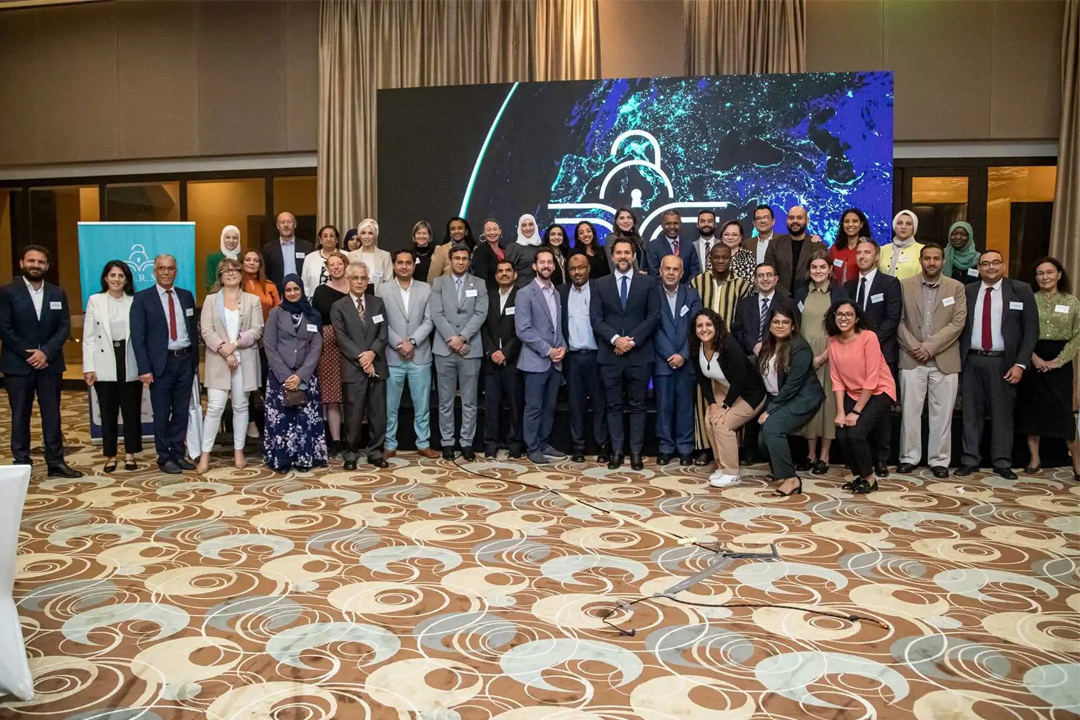
What is a challenge you have right now, and how are you overcoming it?
A lot of the things we want to do become difficult to do in Arabic, and we’re forced to use the English language to use some systems because there is no right text alignment option. There is also no globally accepted lexicon for open science terms in Arabic.
So, what we’re working on right now is a glossary of core open science terms. Our next stage is to send this out to the region working group for consultation. There are a number of different versions of Arabic. It’s not as simple as the difference between American and British spelling in English, for example. It’s deeper and more profound than that, so terms we are choosing for the glossary can have radically different meanings in different parts of the region. It’s therefore important that we have input from experts across the region before we finalise the core terms. Once we have done that, we will be updating our website completely in Arabic, and our in-house team is also working with various organisations – such as PKP and DOAJ – on Arabic translations so that they can have localised resources for their Arabic users.
How do you hope the glossary will be used?
Once we have the core terms, we will also be looking at expanding. We will have a page on the website, which will be open to the public so people can make suggestions. And more importantly, we will be developing a library of localised resources offering information and guidance on various aspects of the open science arena, to help local research communities and research institutions develop and implement their own open science policies and practises.
I hope that instead of playing catch up when new open science terms come out, and translating from English to Arabic, we will instead be contacted at the moment a new term is discussed to be consulted at the conception stage. This helps us, as a region, hit the ground running, when developments happen in open infrastructures and the scholarly community. We have the potential to really drive open science, there’s so much capacity here.
What are you hoping 2024 will bring?
For me as an academic, it’s the bicentenary of my poet, Lord Byron’s death, so it will be a very active year on the academic front!
On the Annual Forum front, I’m hoping that we will be able to establish a proper board, ratify the governance and really drive forward on the strategic priorities with a view to move from an independent project to a stand alone legal entity. We also want to start to build up momentum to get our institutional members to get the capacity to work with our strategic partners to start generating Arabic resources. And working with organisations such as PKP to make sure that everything that comes out, whether it’s open source or not, will have Arabic right to left capacity.

And I’m also hoping that next year, as we start to build up the committee, there will be more people to support these different projects and drive them forward. We’re hoping that this will be able to carry on by itself, that the community is strong enough and proactive enough to take it forward.
And finally we hope to have another successful Annual Forum next year!
You can register for the 2023 Annual Forum for Open Research in Mena here.
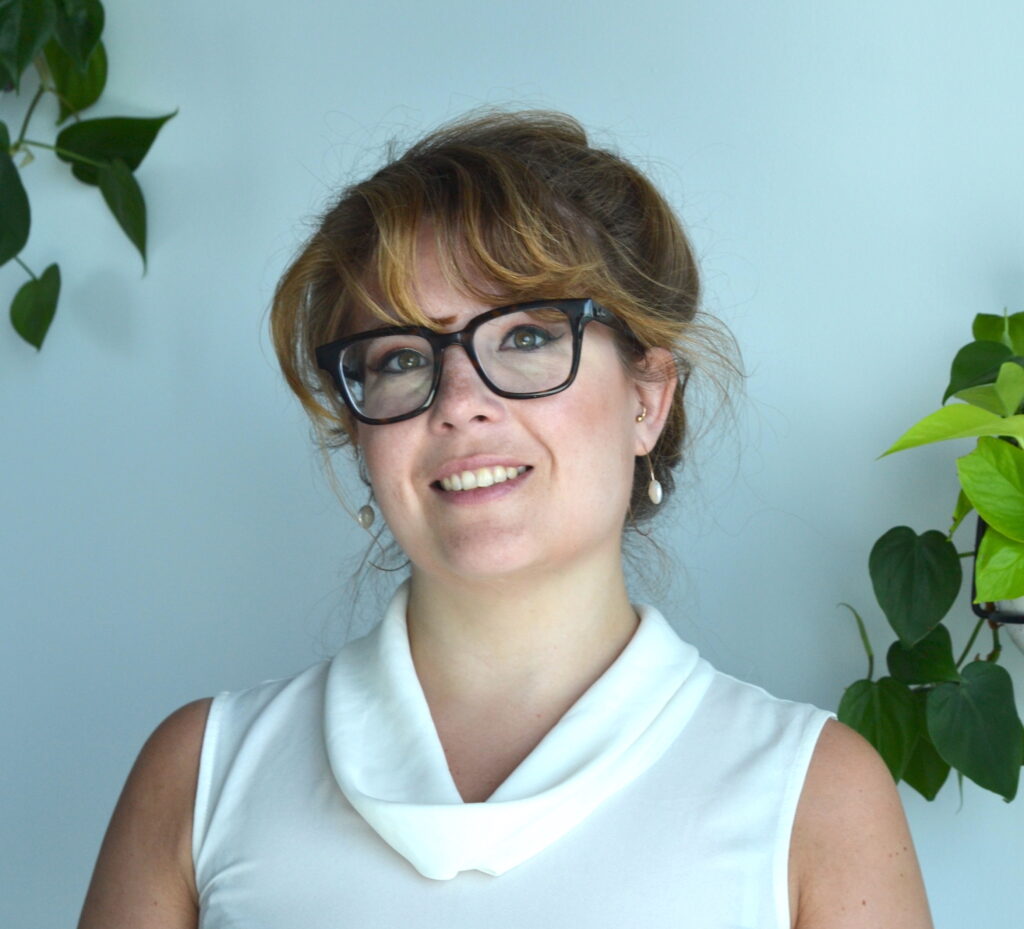
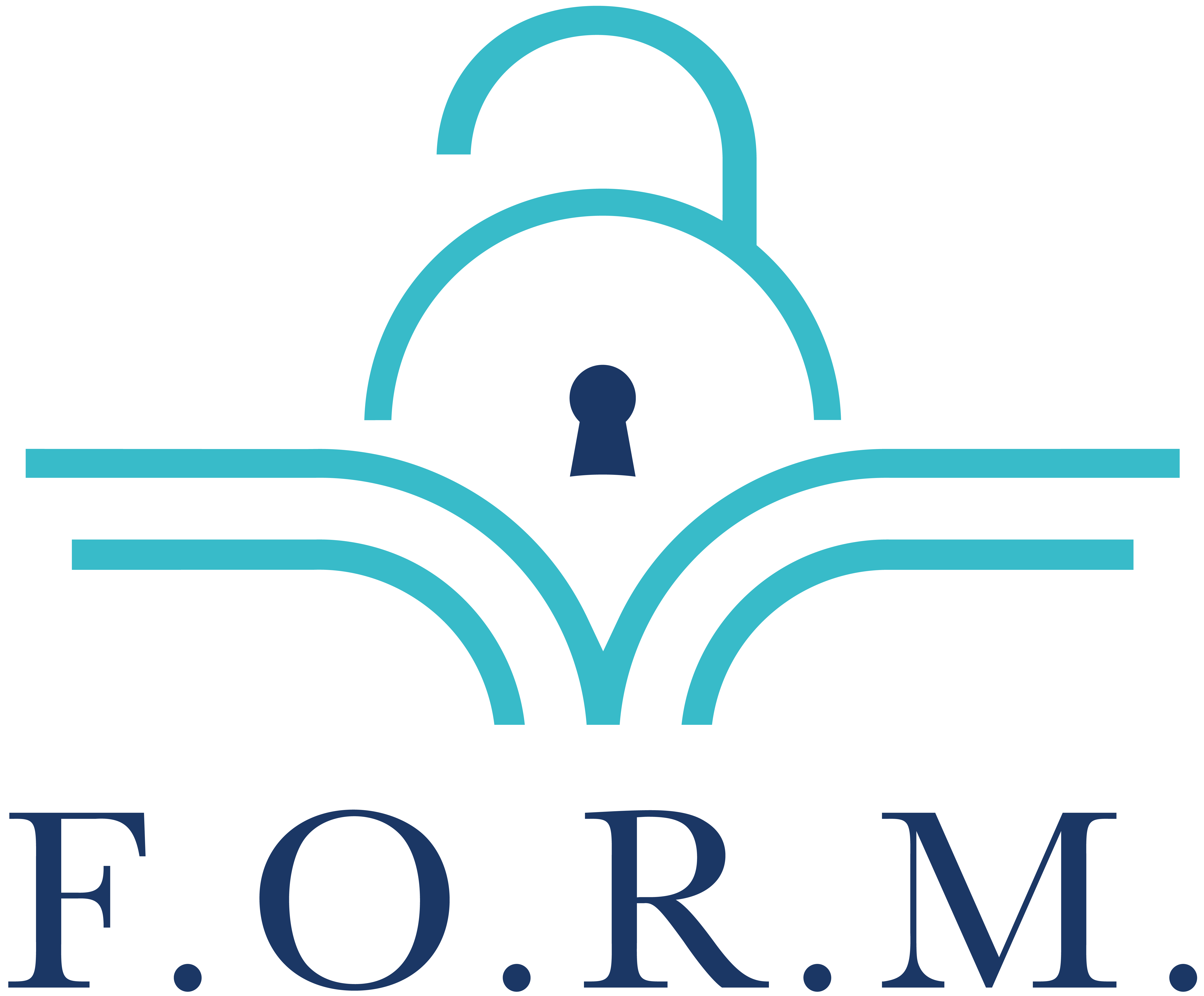

Good luck with everything